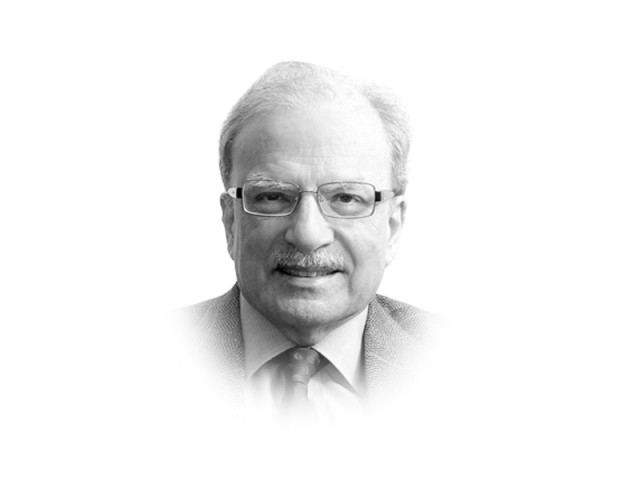Professor Hirschman and Pakistan
Hirschman would have suggested that in today’s turmoil in Pakistan are to be found the seeds of positive change.

The writer is a former caretaker finance minister and served as vice-president at the World Bank
When I was a student of Professor Hirschman’s, he was working on a book that was to have a profound influence on several disciplines. In the several discussions I had with him then, I talked about Pakistan. At that time, the prevailing wisdom at Harvard was that Pakistan under president Ayub Khan had found the road to economic success. Hirschman did not buy that conclusion. He believed that an inflexible political system did not have the capacity to absorb discontent when it surfaced. His book titled Exit, Voice and Loyalty: Responses to Decline in Firms, Organisations and States appeared in 1970 and dealt with the subject of alienation and some possible reactions to it. If people are unhappy with the situation they are in, asked Hirschman, how do they normally respond? This question became extraordinarily relevant with the launch of the Arab Spring in 2011. It is also tremendously relevant for today’s Pakistan.
Hirschman looked at three possibilities. People could remain loyal to the system that has caused them anxiety and despair. In that case, their hope will be that they can work within the system to reform it and thus improve their own situation in it. This happens in most functioning democracies. People use the opportunities inherent in democratic systems to improve what they receive from politics and economics. The second option is to raise their voice. That can be done by stepping out of the system and entering into a different kind of discourse. This is essentially what was done by the participants in the Arab Spring. The Arab street woke up when the realisation became acute that the autocratic structures in several Arab states did not have the space in which the alienated could raise their voice. They took to the streets and to the public squares and brought about regime change in several countries that had been governed for decades by autocrats.
The third option — of exiting the system — is the most radical of the three that Hirschman considered. This has happened in Syria. Earlier, it happened in Pakistan when the citizens of the eastern wing decided to opt out and create a country of their own. They had tried hard to remain within the Pakistani system as conceived by Mohammad Ali Jinnah but the political structure within West Pakistan could not countenance the idea of political power moving from Islamabad to Dhaka. That would have happened had the results of the 1970 election been allowed to create the government that would have been dominated by East Pakistan’s Awami League. What followed is familiar history.
There can be no denying the fact that the level of people’s alienation with the current economic and political systems in Pakistan has, at this time, reached a level never experienced before. And yet, the citizens have chosen to remain within the developing political order, rather than opt out and try for something new. That the people’s response this time around has been different from those in the Arab world is because of their belief in the political order that is under development. But the process of development has been messy which was to be expected. This brings me to another point that Hirschman developed in his long academic career.
He was of the view that progress is never linear. It does not happen in a smooth way, either with the economy or with the political system. Most systems operate through disequilibria making adjustments as they go along. According to Jeremy Adelman, a professor of history at Princeton whose biography about Hirschman will be published next year, the late professor thought “disequilibria creates a problem that you have to solve — and that’s a good thing. Somehow we only think in terms one thing to happen; everything else will coalesce around it and we’ll come out all right”. But change in the world of politics and economics is much more complicated than that. Had he been viewing the situation of today’s Pakistan, he would not have despaired. He would have suggested that in today’s turmoil are to be found the seeds of positive change. The tensions that we see today in the structures of country’s economics and politics will get resolved in time. The important thing is not to exit the system, to stay loyal to it but continue to raise your voice to get the change that would be positive for the entire citizenry. To quote from Adelman again, Hirschman thought that “even the most seemingly immutable, impossible situations could be solved, that you could change things that seemed unchangeable.” There is an important lesson in this for Pakistan.
Published in The Express Tribune, December 31st, 2012.














COMMENTS
Comments are moderated and generally will be posted if they are on-topic and not abusive.
For more information, please see our Comments FAQ